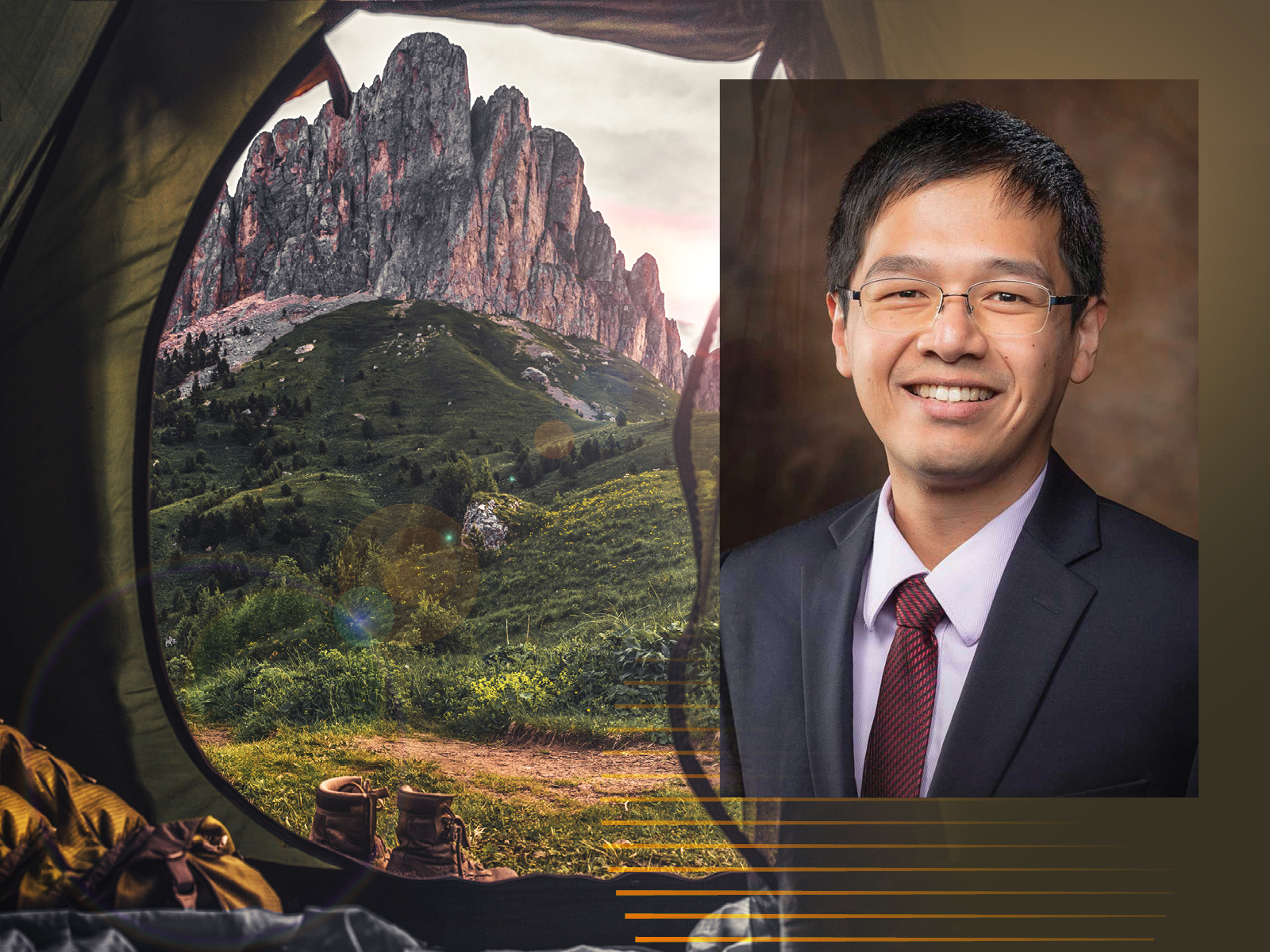 HHP - Update me in site_config > General Configuration
HHP - Update me in site_config > General Configuration
An HHP researcher is studying how travel experiences can lead to greater feelings of happiness among tourists.

pictured: Yao-Chin Wang, Ph.D., assistant professor in tourism, hospitality and event management
by Manny Rea
Common consensus has always dictated that paying for experiences is more valuable than collecting possessions. But how can travel companies apply this principle to their business strategies?
Yao-Chin Wang, Ph.D., assistant professor in the Department of Tourism, Hospitality & Event Management, researches how technological experiences and artificial intelligence can support human mindfulness in the hospitality and tourism industries. Mindfulness refers to the ability to be fully present and aware of one’s surroundings in the moment.
In the case of his recent study, Would Travel Experiences or Possessions Make People Happier?, Wang and two other researchers focused on the marketing side of consumer psychology and how tourism businesses and destinations can maximize long-term happiness for visitors.
Wang differentiated happiness into two opposites: hedonic and eudaimonic happiness. Hedonic happiness refers to the pursuit of short-term pleasurable experiences while eudaimonic derives from the fulfillment of higher-order psychological needs — leading to feelings of purpose and inner peace.
In the context of travel, Wang believes tourism businesses can curate greater enjoyment for their guests by emphasizing experiences that elicit eudaimonic happiness such as when engaging with novel environments, breaking away from routine and making new social connections all while on vacation.
The study tested this thought through an empirical experiment based on four hypotheses positing that eudaimonic consumption will always generate greater happiness whether in general or in tourism.
He and his colleagues asked study participants about purchases they had recently made with the intent of furthering their life happiness. In a specific example, participants were asked about any purchases made in the last six months that cost more than $50 and whether they felt a greater sense of enjoyment or a sense of indulgence from the purchase. Their hypotheses were supported across the board.
They would find sufficient evidence from more than 450 responses collected since 2019 that supported their belief that eudaimonic consumption would create greater happiness in general and with their tourism angle. They would also confirm their hypotheses that when consumption is made with a eudaimonic motive, there is no difference in happiness between those who consume tourism experiences and those who consume possessions.
On the flip side they also supported their final hypothesis that when a consumption is made with a hedonic motive, those who consume tourism experiences are happier than those who consume possessions. So, what does this mean for tourism companies?
“Number one, when branding your destination, don’t think just about hedonic statements but think also about the eudaimonic opportunities customers can join in on,” Wang said.
Several instances of the practice exist such as with New Zealand’s tourism slogan, “100% Pure New Zealand.” He said this kind of marketing showcases eudaimonic values such as being free, mental clarity and embracing the true self, which can elicit a happier response from visitors of the country.
Some of these branding efforts are even being done from the living room. Wang cited AirBnB’s online experiences as another way companies are fulfilling eudaimonic happiness by offering opportunities for customers to see the world by touring the Taj Mahal virtually from the comfort of their home.
Businesses can also find ways to combine material purchases supplemented with experiences whether online or in person with classes in cooking, exercise and yoga. By offering the experience first and the goods second, from yoga mats to pots and pans, customers can ultimately extract greater happiness.
It’s this online aspect that Wang wants to explore next. One of his current research proposals aims to support mindfulness through an augmented reality platform that uses natural sounds and guided meditation of major destinations all through a website.
“Here we can really think about how to combine material purchases and a higher level of happiness when designing a tourism experience,” Wang said. “Even if they don’t have a chance to go outside, we can create an outdoor experience for potential viewers to enjoy natural beauty.”
read more >>